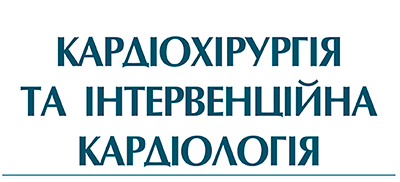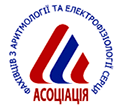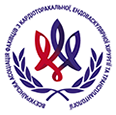Reviews
Markers of inflammation before and after coronary artery bypass grafting and the effectiveness of statins
O.J. Zharinov1, O.A. Yepanchintseva2, I.V. Shklianka2, A.I. Kurchenko3, B.M. Todurov2
1 Shupyk National Medical Academy of Postgraduate Education of Healthcare Ministry of Ukraine, Kyiv, Ukraine
2 Heart Institute of Healthcare Ministry of Ukraine, Kyiv, Ukraine
3 O.O. Bogomolets National Medical University, Kyiv, Ukraine
The aim of the review is to summarize contemporary views on mechanisms of the systemic inflammation in patients with coronary heart disease after coronary artery bypass grafting (CABG). The information about the prognostic value of activation of the inflammatory markers, such as C-reactive protein (CRP), interleukin-6 (IL-6) and tumor necrosis factor (TNF) is provided. It is shown that elevated levels of high-sensitive CRP before CABG and high levels of TNF and IL-6 during postoperation period may be associated with hemodynamic disorders and increasing the frequency of early complications and more likely occurrence of restenosis at long-term follow-up. Therefore, the study of inflammatory markers may provide valuable information about short- and long-term prognosis after CABG. Statin medications reveal highly anti-inflammatory activity and reduce the risk of coronary events and atrial fibrillation after CABG surgery. The use of statins before and after revascularization surgery reduces the risk of acute coronary syndrome and the level of perioperative mortality by 30–42 %, and is effective for the prevention of complications within one year after CABG surgery.
Key words: coronary artery bypass grafting, systemic inflammation, statins.
| [PDF] | [References] |








